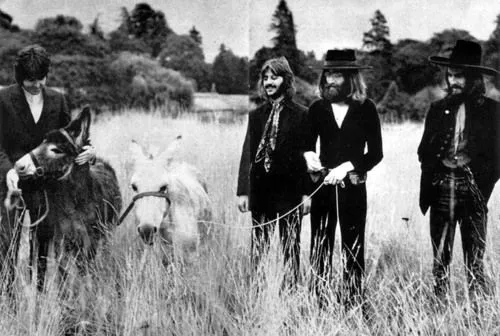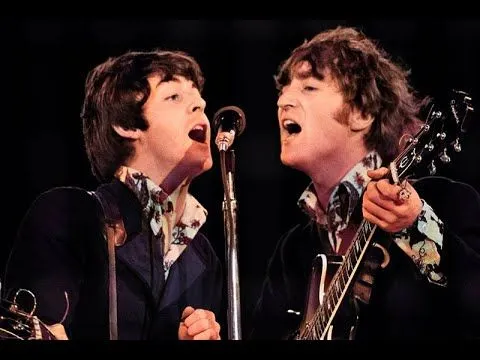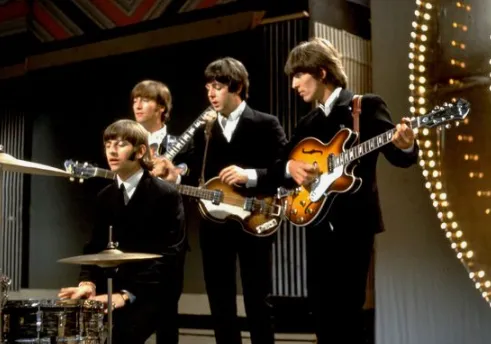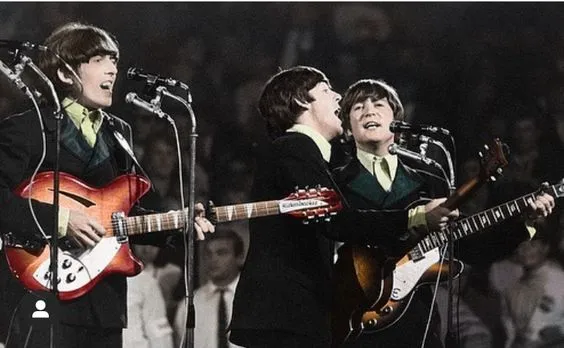About the song
(Watch the video below)
### Inspiration and Composition
Paul McCartney wrote "Blackbird" in 1968, drawing inspiration from various sources. One of the primary influences was the civil rights movement in the United States. McCartney has often cited the struggle for racial equality as a backdrop for the song's creation, with the "blackbird" symbolizing a marginalized individual gaining the strength to rise above adversity. The lyrics, "Take these broken wings and learn to fly," serve as a metaphor for empowerment and resilience.
Another influence was Johann Sebastian Bach's "Bourrée in E minor," a piece McCartney and George Harrison used to play as a guitar duet. McCartney adapted the fingerpicking style from Bach's composition, creating a complex yet melodic guitar arrangement that forms the backbone of "Blackbird."
### Musical Structure
"Blackbird" is notable for its minimalist arrangement. The song features McCartney's vocals accompanied solely by his acoustic guitar and a tapping sound, which was created by McCartney tapping his foot. This stripped-down approach allows the song's intricate guitar work and poignant lyrics to take center stage.

The guitar arrangement is built around a fingerpicking pattern that combines melody and harmony, creating a rich, textured sound. McCartney's use of open chords and alternate tunings adds to the song's distinctive and memorable quality. The rhythmic foot tapping provides a steady pulse, giving the song a subtle yet effective sense of momentum.
### Lyrics and Themes
The lyrics of "Blackbird" are both poetic and evocative, carrying a message of hope and transformation. The blackbird in the song represents someone who is facing hardship but has the potential to overcome their struggles. Lines like "You were only waiting for this moment to arise" suggest that the individual has always possessed the strength to change their circumstances, but needed the right moment or inspiration to take action.
The song's universal message of hope and empowerment has resonated with listeners from diverse backgrounds. Its simplicity and sincerity make it a powerful anthem for personal and social change. The lyrics' ambiguity allows for multiple interpretations, further contributing to its enduring appeal.
### Recording and Production
"Blackbird" was recorded on June 11, 1968, at EMI's Abbey Road Studios in London. Unlike many other Beatles songs, which involved elaborate production techniques and multiple takes, "Blackbird" was recorded in a relatively straightforward manner. McCartney performed the song live in the studio, capturing the raw and intimate feel that characterizes the final recording.
Producer George Martin and engineer Geoff Emerick played crucial roles in capturing the song's essence. The decision to keep the arrangement minimal and focus on McCartney's performance was deliberate, emphasizing the song's lyrical and musical simplicity.
### Reception and Legacy
Upon its release, "Blackbird" received widespread acclaim for its beauty and depth. Critics and fans alike praised McCartney's songwriting and guitar work, noting the song's emotional resonance and timeless quality. Over the years, "Blackbird" has been covered by numerous artists across various genres, further cementing its status as a classic.
The song has also been used in various cultural contexts, from civil rights events to environmental causes, highlighting its broad appeal and relevance. Its message of hope and resilience continues to inspire listeners, making it a staple in McCartney's live performances.

### Influence and Impact
"Blackbird" has had a significant impact on popular music and culture. Its innovative guitar work has influenced countless musicians, inspiring them to explore fingerpicking techniques and acoustic arrangements. The song's message of empowerment and resilience has resonated with audiences worldwide, becoming an anthem for those facing personal or social challenges.
In addition to its musical influence, "Blackbird" has been recognized for its cultural significance. The song's connection to the civil rights movement and its themes of overcoming adversity have made it a symbol of hope and change. Its simplicity and emotional depth have ensured its place in the pantheon of great songs, cherished by generations of listeners.
### Conclusion
"Blackbird" by The Beatles is a masterful example of how simplicity and depth can coexist in music. Through its intricate guitar work, heartfelt lyrics, and universal message, the song has transcended its time to become a timeless classic. Paul McCartney's ability to craft a song that is both personal and universal has ensured "Blackbird's" enduring legacy as a beacon of hope and inspiration. As a testament to The Beatles' genius and McCartney's songwriting prowess, "Blackbird" continues to resonate with and inspire listeners around the world.



